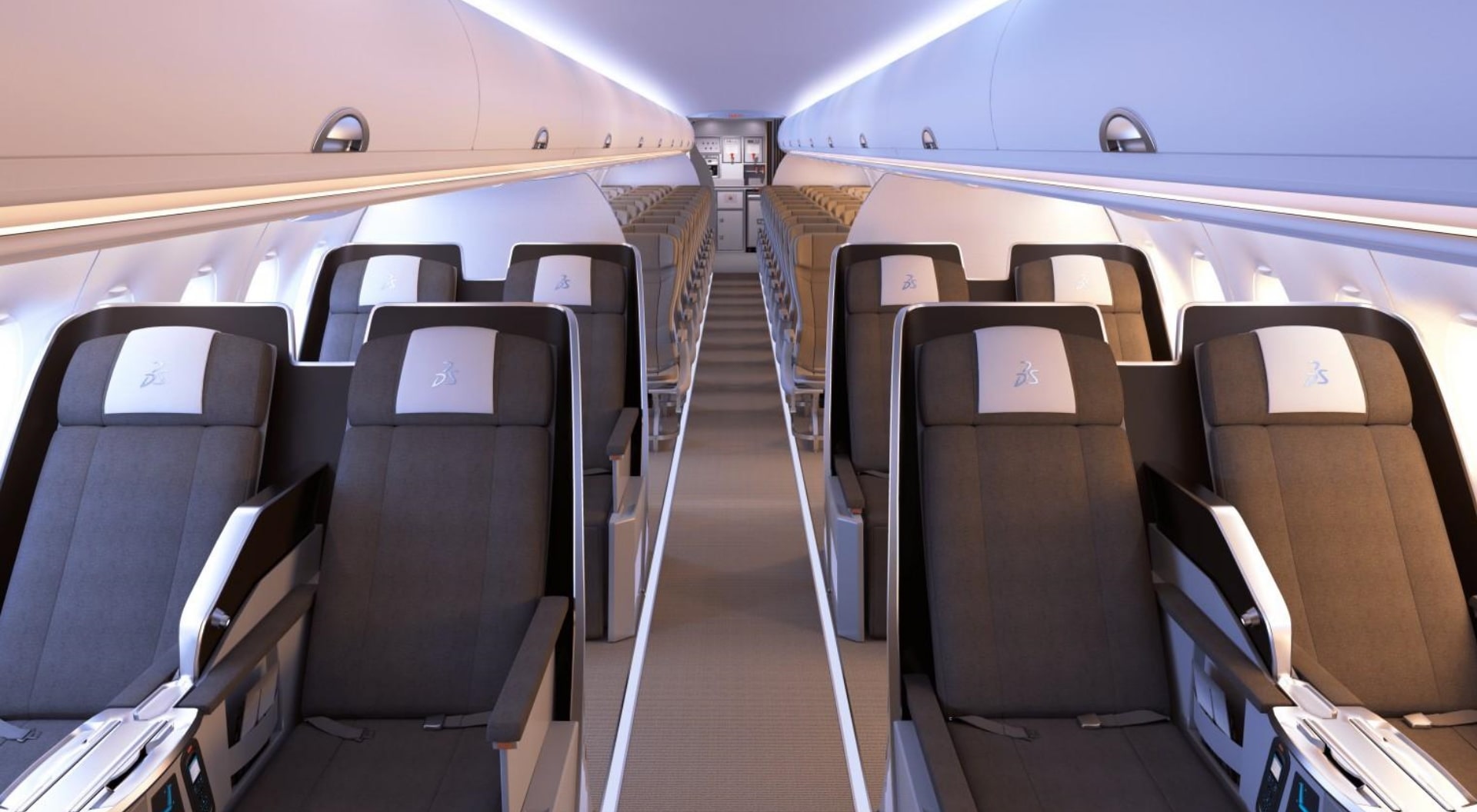Airlines
Optimize your operations and provide an outstanding airline experience to your customers.
What Are the New Market Trends Changing the Airlines Landscape?
Technological and environmental leaps are reshaping the industry. What are they and how will they affect your business?
- Unique Experience
- Advanced Air Mobility
- Airlines Operation
Cabin Design Immersive Experience Video
How do you turn every flight into a competitive advantage?
In today’s customer-centric travel landscape, passenger experience is the new battleground. Airlines must go beyond price and punctuality—delivering distinctive, personalized journeys that drive loyalty and satisfaction. Leveraging digital continuity and real-time collaboration, airlines can now design, validate, and retrofit cabin experiences faster and smarter than ever.
Dassault Systèmes' 3DEXPERIENCE platform empowers teams with a next-generation, spatially immersive environment—enabling more agile cabin layout changes, efficient retrofit programs, and precise configuration management. From customized seating to tailored in-flight entertainment, design decisions are now guided by data and delivered with confidence.
The result: shorter lead times, reduced retrofit costs, and a passenger experience that feels as intentional as it is memorable. In a world where every detail matters, airlines gain the edge by making comfort and personalization a core part of their brand.
Advanced Air Mobility Towards Sustainability
Advanced Air Mobility (AAM) promises to completely change the way we fly by making it faster, safer and more accessible.
How can airlines prepare for the next era of sustainable air mobility?
With NetZero targets accelerating, airlines must look beyond today’s solutions to embrace the next generation of propulsion and mobility. While Sustainable Aviation Fuel offers a critical bridge, Advanced Air Mobility (AAM)—powered by electric and hydrogen propulsion—is rapidly emerging as a strategic opportunity for urban, regional, and short-haul transport.
AAM promises lower emissions, reduced operating costs, and new revenue models—but it also demands new approaches to design, certification, and fleet integration. Dassault Systèmes supports this transition with a model-based, simulation-driven platform that empowers airlines and their partners to co-develop and validate disruptive concepts with speed and confidence.
From lifecycle assessment to real-time virtual testing, airlines gain the agility and insight needed to shape future fleets that are not only compliant—but commercially viable and environmentally responsible. AAM is more than a trend—it’s a transformation. Now is the time to lead it.
One Platform for Digital MRO
Harness the power of data on a single integrated digital platform to optimize fleet maintenance, repair and overhaul (MRO) in Aerospace & Defense.
How can airlines turn operational excellence into a competitive advantage?
In a market where every minute counts and margins are razor-thin, operational efficiency is no longer optional—it’s a differentiator. Airlines face mounting pressure from OEMs and new-generation aircraft providers, requiring them to rethink and industrialize their maintenance and operations strategies.
By embracing predictive analytics, AI, and real-time data, airlines can transition from reactive to proactive decision-making. From optimizing flight schedules and crew allocation to enabling predictive maintenance, digital continuity delivers measurable gains: reduced downtime, faster aircraft turnaround, and improved safety compliance.
Dassault Systèmes empowers airlines and MROs with next-generation tools to synchronize operations, increase fleet reliability, and drive down costs—while maintaining agility in a rapidly evolving environment. With digitalized processes and integrated systems, airlines unlock the full potential of their assets and teams.
The result? Smarter operations, stronger margins, and a safer, more resilient fleet.
Discover More
Build the Future of Sustainable Aviation
Build the Future of Sustainable Aviation
Learn how to accelerate sustainable aviation programs from concept to takeoff:
More on the Aerospace & Defense Value Chain
Dassault Systèmes has a proven track record as a catalyst and enabler of the world's leading industrial transformations. Discover more here
